In conjunction with CloudNativeCon + KubeCon Europe (March 29-30, 2017), the Cloud Native Computing Foundation (CNCF) conducted a survey of our attendees. More than 430 conference attendees (out of 1500) completed the survey, with a majority of respondents (54%) coming from the technology industry and from EU-based companies (61%). Most of these respondents were DevOps/SREs (41%) or Developers (29%) at companies over 5,000 employees (30%).
The goal of these surveys, which are issued in advance of our bi-annual conferences, is to understand the state of Kubernetes’ deployments and other container management platforms, as well the progress of container deployment in general.
This was the second time CNCF had taken the temperature of the container management marketplace. We continue to include comparisons to other surveys, such as Google’s own Kubernetes Survey in March, 2016 and again in June 2016 to highlight important trends in this space. You can view the results from our previous survey from CloudNativeCon + KubeCon Seatting (Nov 8-9, 2016) here.
The evolving landscape of cloud management platforms
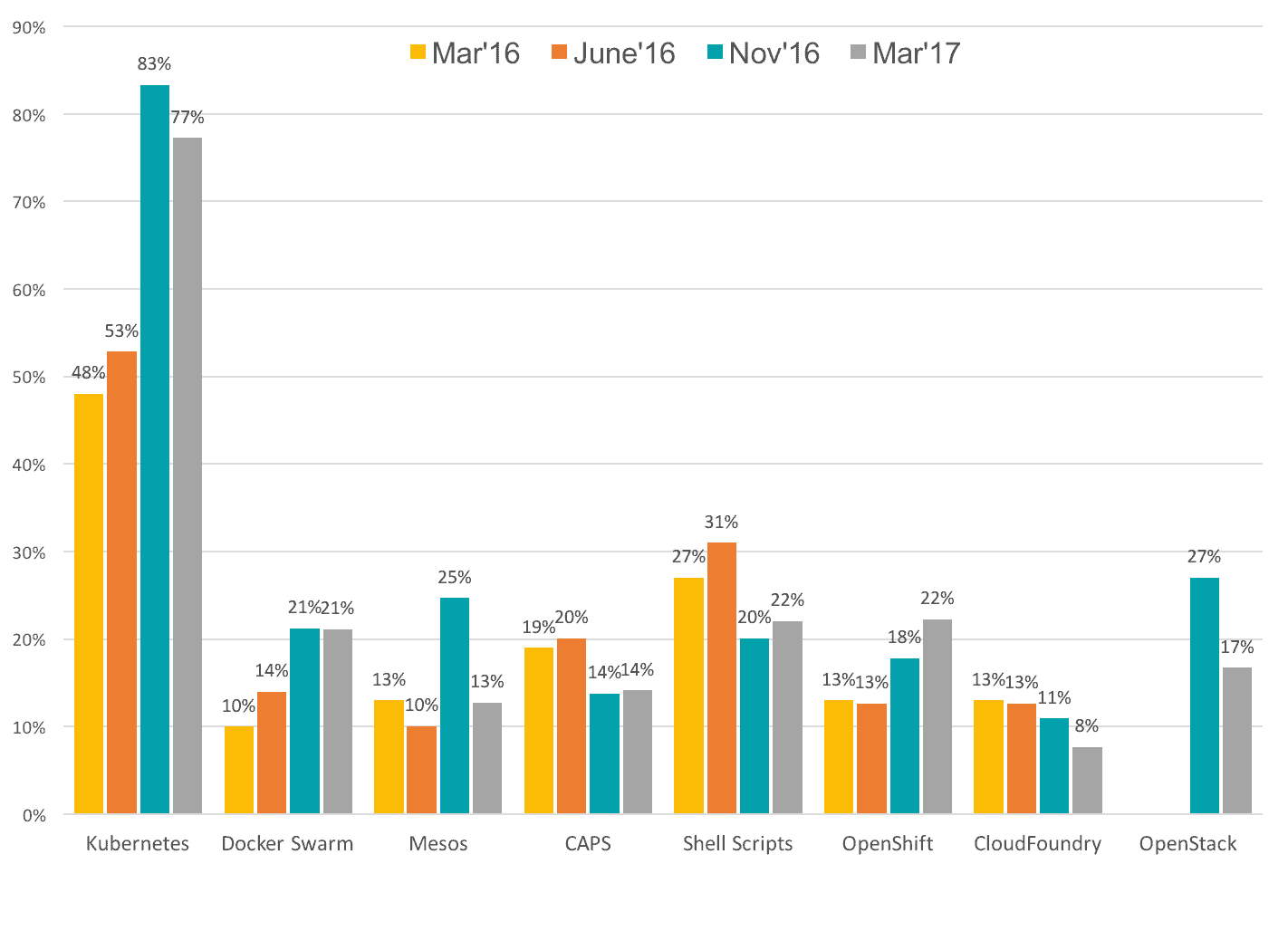
While these surveys targeted audiences with an existing interest in Kubernetes, it’s interesting to observe changes in this segment of the container management marketplace over last year. We continue to see two consistent trends as observed in our November 2016 survey:
- Growth in commitment to Kubernetes from 48% (Google survey, March 2016) to 77% (CloudNativeCon + KubeCon survey, March 2017)
- Slight stagnation in the move away from home-grown management (Shell Scripts and CAPS) to commercial off-the-shelf (COTS) solutions (Kubernetes, Docker Swarm, Mesos, etc.) This is most likely due to the EU-based audience of this survey, versus the US-based audience of November 2016’s survey so these numbers reflect the usage of more home-grown management solutions in the EU.
- OpenShift increased from 18% to 22% from November 2016 to March 2017, showing slightly more usage of OpenShift in the EU compared to the US.
Kubernetes deployments in Amazon and on-premise environments
The CloudNativeCon + KubeCon survey from March also illustrates an ongoing increase for hosting on Amazon EC2 as well as continued usage on-premise. This speaks to the versatility of Kubernetes and cloud native technologies in supporting the needs of any type of deployment environment whether cloud native itself, or a homegrown datacenter.
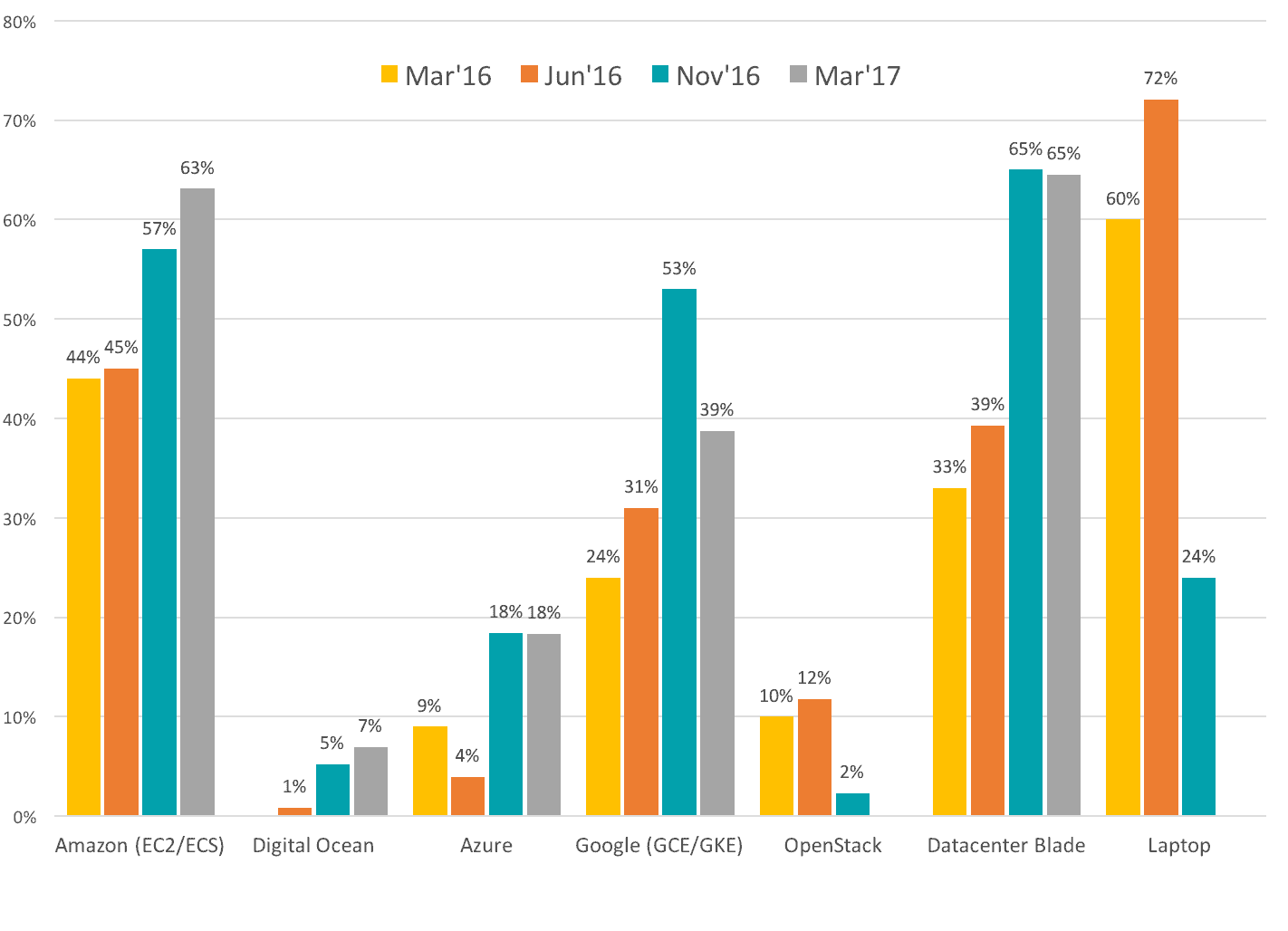
Kubernetes is moving into production
Containers are being used across a variety of development stages, with a vast majority of companies continuing to increase their use of Kubernetes for development and testing where we’ve seen huge growth over the last year.
Most notably, 31% of companies have future plans to expand their container usage into production.
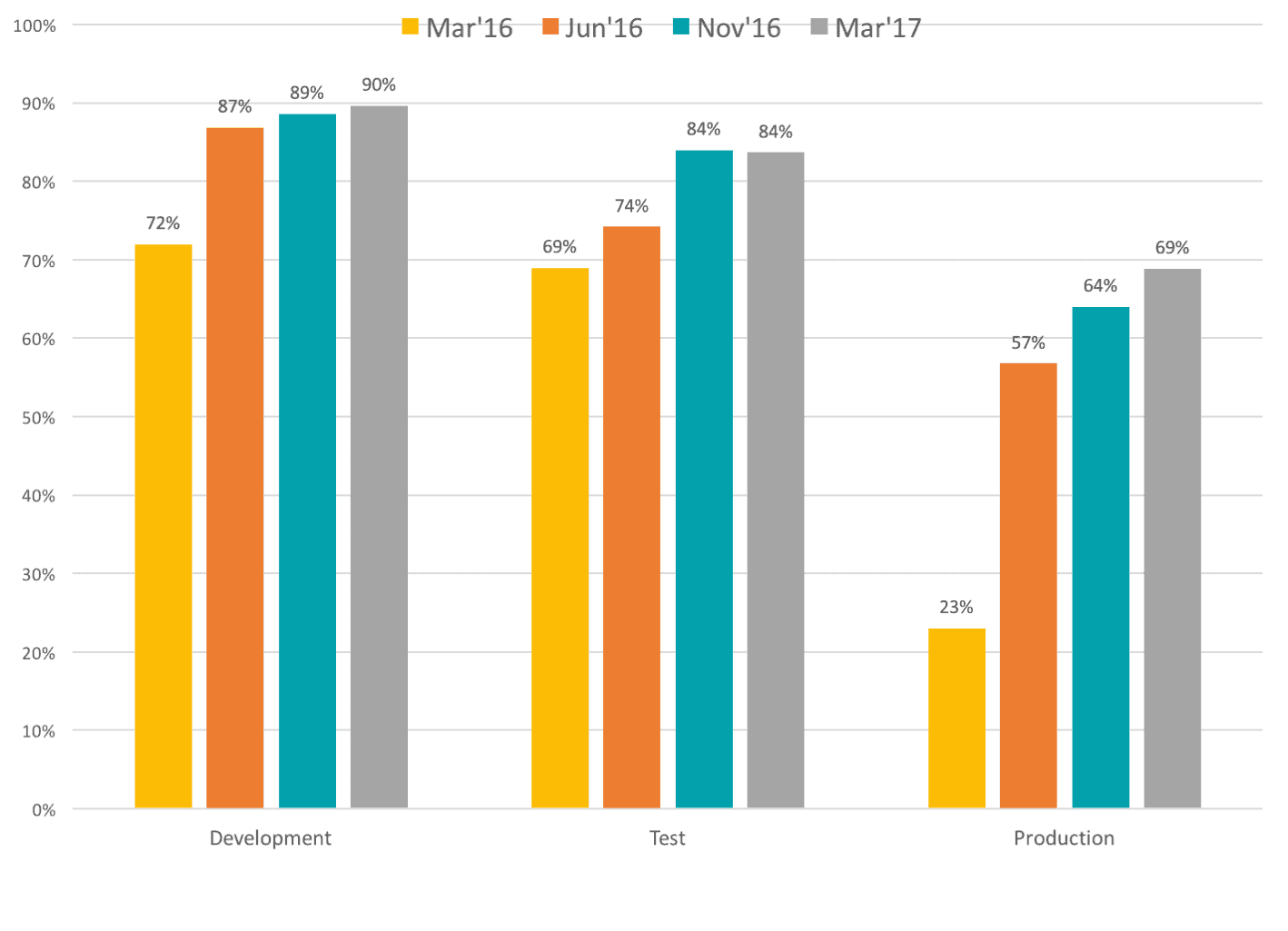
Container usage volume continues to rise
We continue to see the trend of companies using a larger number of containers overall. Low-volume deployments (<50 units) decreased by 12% since November and higher volumes, specifically the 250-999 unit range, increased by 33%.
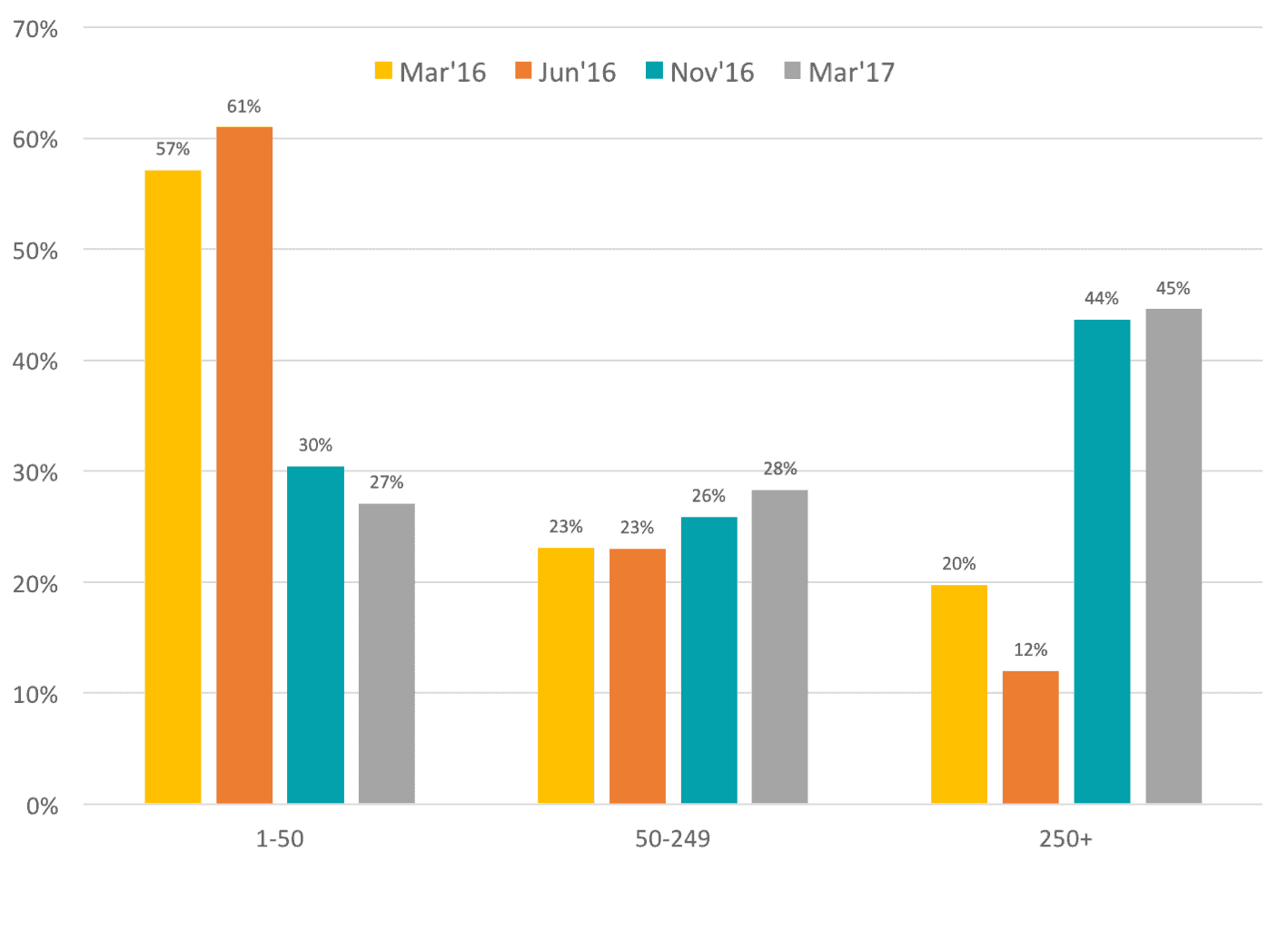
Challenges of deploying containers
The biggest challenges companies are facing when deploying containers are networking, security, and storage. These challenges are consistent with the pain points the CNCF has identified and key areas of focus for the Technical Oversight Committee.
CNCF recently added CNI (Container Networking Interface) as a hosted project to provide a simpler networking interface across container solutions and environments. In addition to that, CNCF has formed working groups in all three of these areas to address and improve issues. The Kubernetes community also runs a Storage SIG and Network SIG. If you’re interested in joining one of these working groups, you can learn more here.
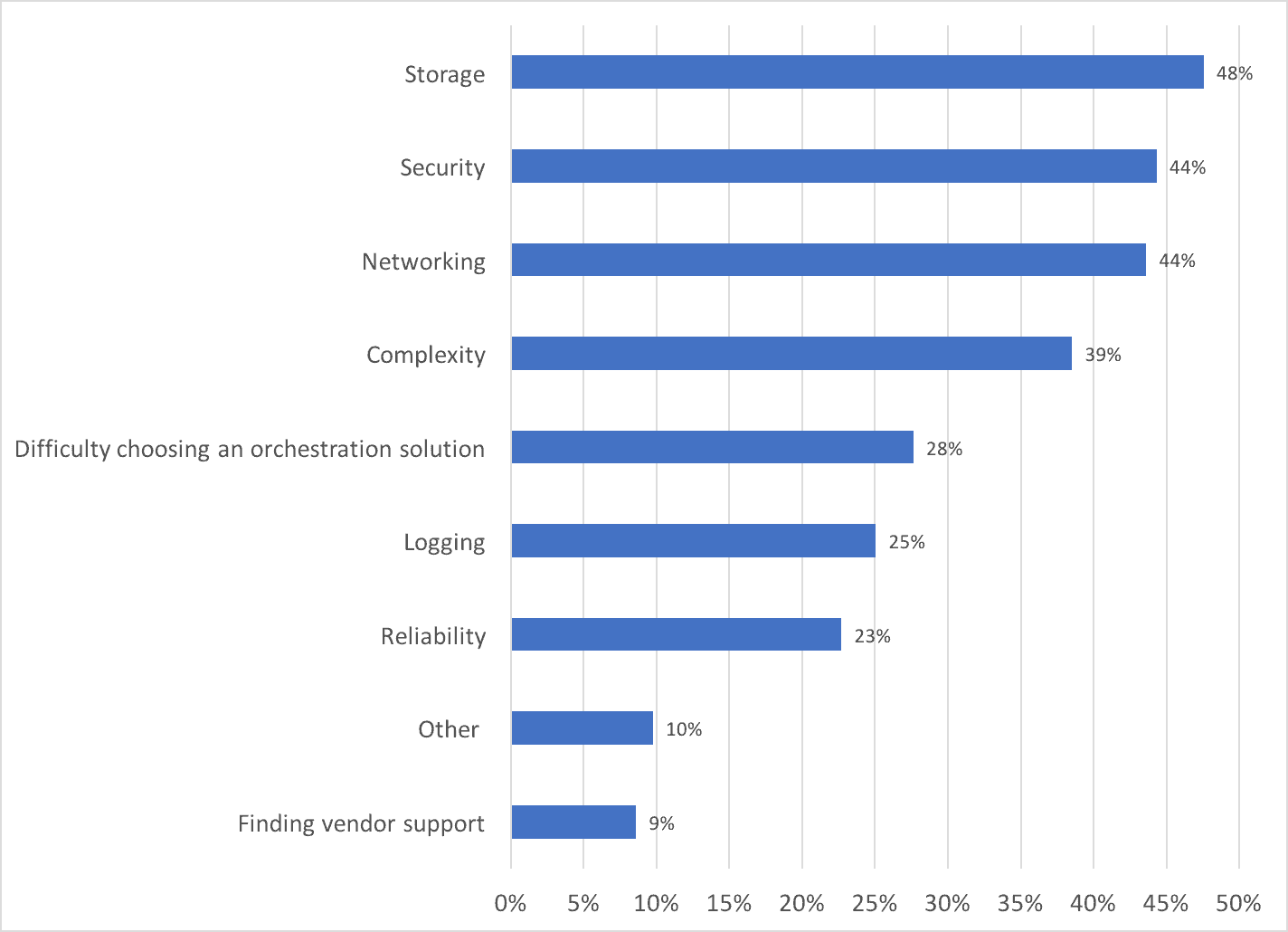
A recent CNCF webinar on cloud native storage gave an overview of the evolving cloud native storage requirements and data architecture. Mark Balch, vice president of products and marketing, Diamanti; Eric Han, vice president of product management, Portworx; and Clint Kitson, technical director {code} by Dell EMC, talked about both traditional and modern applications and how they use data. Check out the webcast to learn the basics of cloud native storage and how you might make choices about cloud and storage platforms supporting your applications.
Adoption of CNCF projects
Kubernetes is the most used CNCF project in production (84%), followed by Prometheus (44%), and Fluentd (42%). Kubernetes use in production jumped 66% between November 2016 and March 2017, and evaluation decreased by 94% further supporting that Kubernetes has graduated from the consideration phase at many companies and into production.
OpenTracing and Linkerd are being considered by 23% of respondents, even though only 3-5% of respondents are currently using these technologies in production. Usage for both projects jumped 200% between November 2016 and March 2017 with further growth expected.
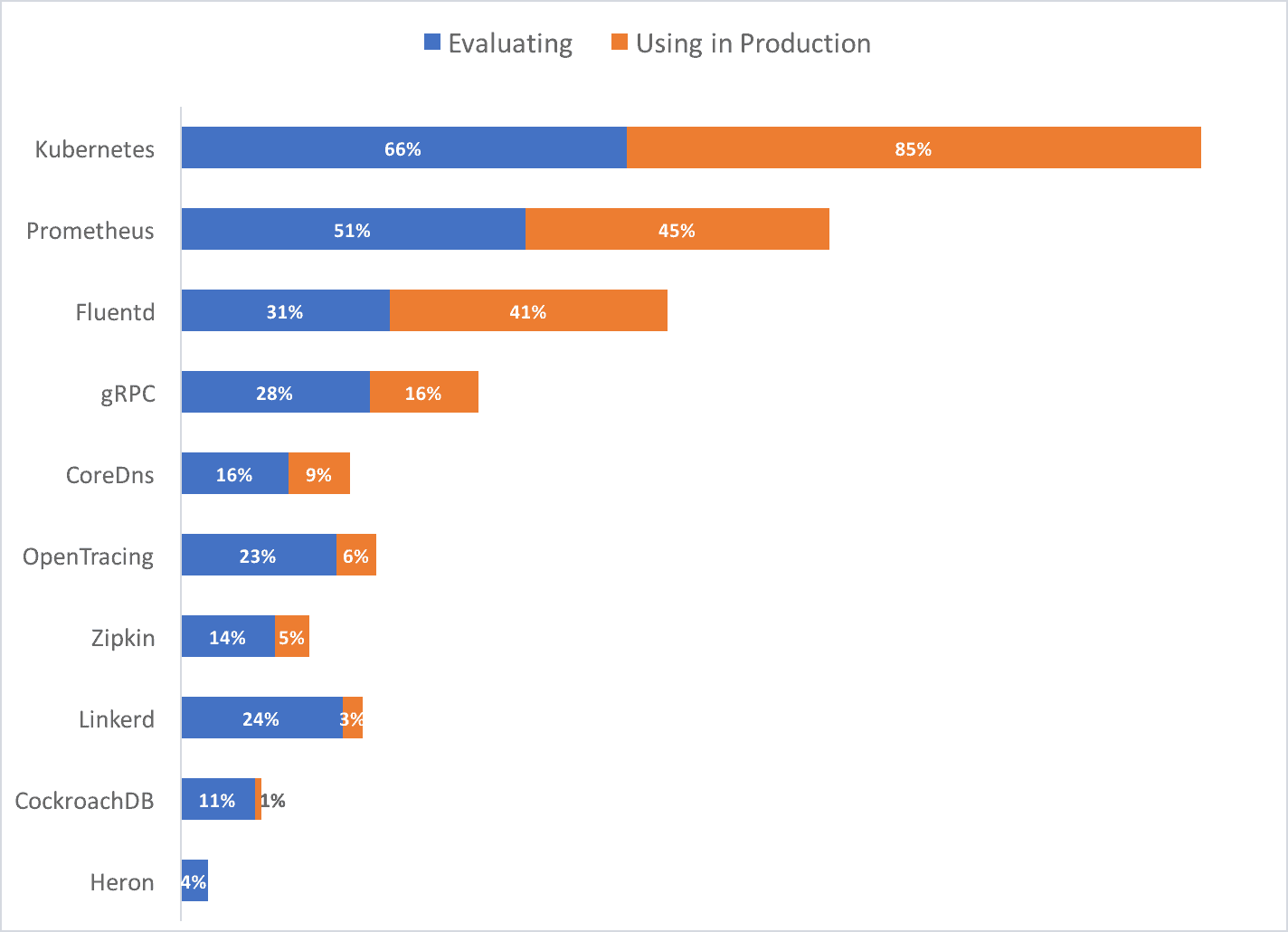
To learn more about the up-and-coming Linkerd project, this CNCF webcast featuring Co-Creator and Buoyant Co-Founder William Morgan talks about what an open source service mesh for cloud native applications is exactly. In Berlin, Buoyant CTO Oliver Gould also gave a Linkerd keynote on managing the complexity of communications in distributed systems.
Learning cloud native technologies
According to the survey, the majority of respondents learned about cloud native technologies through meetups and local events and documentation. CNCF is continuing to invest time and resources into improving documentation, as well as expanding the output of educational resources such as case studies.
If you’re interested in learning more, you can check out CNCF’s upcoming events and a full list of community meetups.
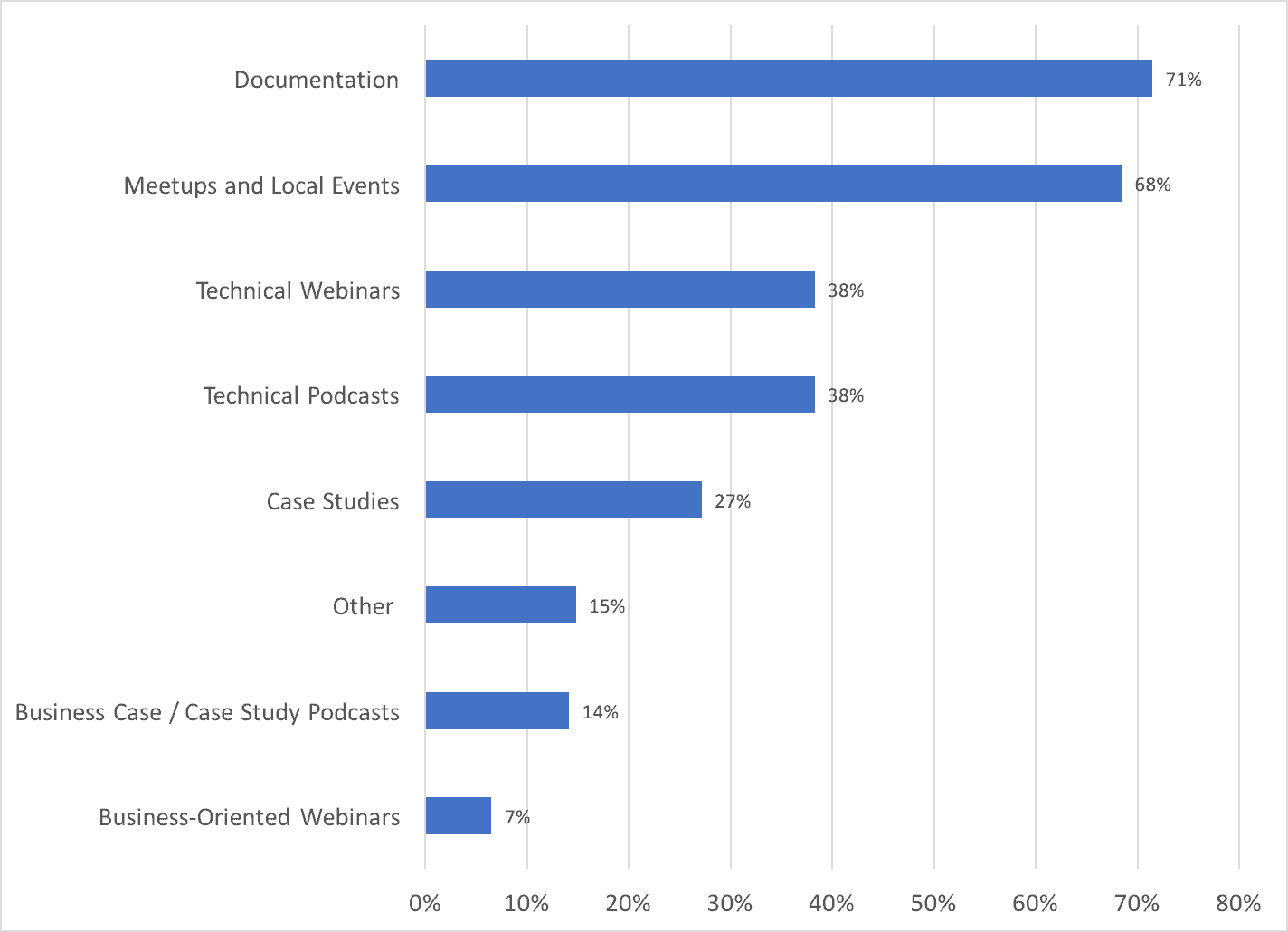
The future of cloud native technologies
Cloud native technologies are continuing to expand into production environments across global companies, from startups to enterprises. Kubernetes is leading this evolution as the orchestration platform of choice. As higher volumes of containers continue to expand and be deployed at scale, companies are choosing to manage their applications with Kubernetes and other cloud native technologies like Prometheus and Fluentd.
The future of cloud native is exciting, with over 91% of respondents recommending CNCF technologies and the use of cloud native technologies in production growing an average of 325% over the last 6 months.
Upcoming events – join us to learn more Kubernetes in production
Interested in learning more about how to use Kubernetes and other cloud native technologies in production?
The CNCF’s flagship CloudNativeCon + KubeCon will take place December 6-8 in Austin. The event gathers leading technologists from multiple open source cloud native communities to further the education and advancement of cloud native computing. Discounted registration of $900 for corporations and $450 for individuals ends October 6.